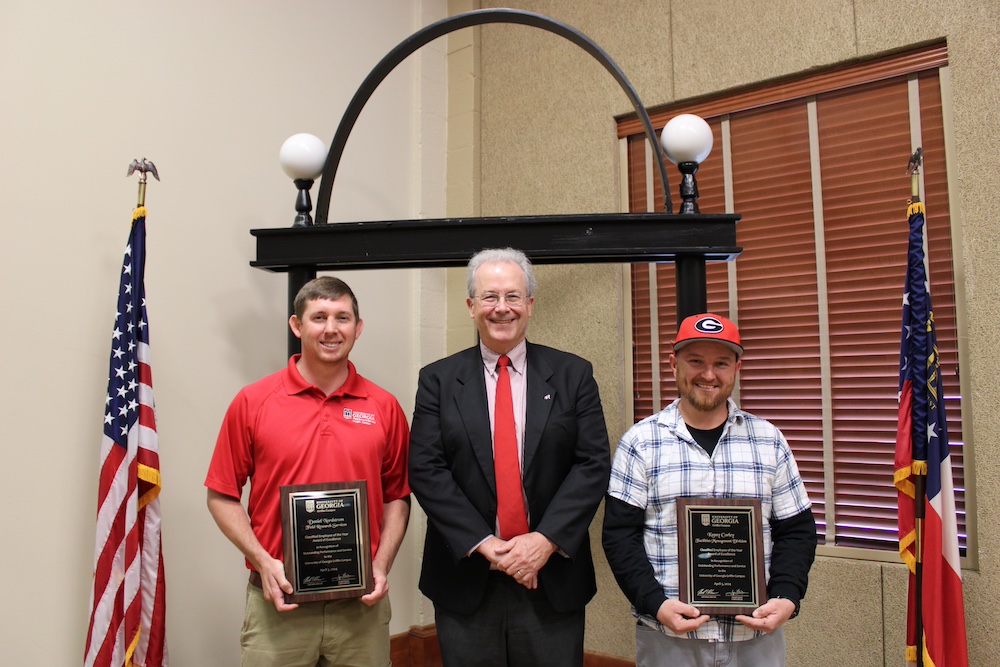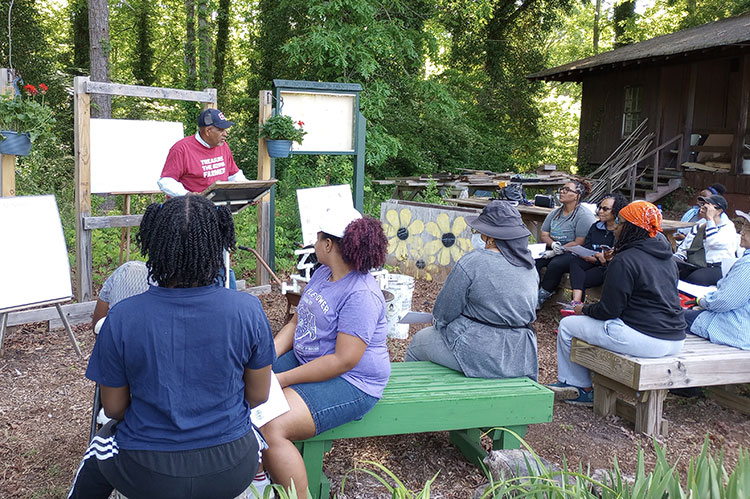By Wayne McLaurin
Georgia Extension Service

Volume XXVII |
If you prefer to use few or no pesticides in your garden, you can still grow bountiful crops. The secret to organic gardening is to follow good gardening practices as closely as possible.
Here are a few ideas:
Crop rotation.
Avoid planting the same crop in the same place year after year. Rotating crops helps keep vital soil nutrients from being depleted.
For example, legumes add nitrogen to the soil, and tomatoes take nitrogen away. Crop rotation also tends to prevent the buildup of diseases and insect pests.
Heat up your soil.
Loosen the soil with a rototiller or a turning fork. After tilling, cover the area with black plastic. Seal the edges with stones or soil to keep in heat and moisture.
The heat that builds up beneath the plastic will kill weeds, most garden pests and their eggs and other nasty organisms. Leave the plastic in place for several weeks -- the longer the better.
If you can't spare the entire garden, split it and treat half at a time. This is called soil solarization.
Keep gardens weed-free.
Weeds compete with your plants for water, nutrients and light. They're a favorite hiding place, too, for insects and disease.
Weeding regularly rather than all at a time makes the job more manageable. Don't throw weeds on the compost pile, though, as you might replant the seeds when you use the compost.
Space plants properly.
Plants need good air circulation to breathe and stay healthy. Proper spacing allows better air circulation and more rapid drying after rains. Remove anything that restricts airflow. Prune and remove dead or diseased shoots, too.
Don't rush the garden.
Never work it when the soil is too wet. If you pick up a handful of soil, form a ball and drop it to the ground, and it doesn't break apart, the soil is too wet.
Choose the right varieties.
Go for the ones that are adapted to growing conditions in your area. Contact your University of Georgia Extension Service county office for information about plants suited for your area.
Get the right seeds and plants.
Buy the ones that are disease- and pest-resistant. In seed catalogs, on seed packets and on seedling plant tags, look for the letters V (verticillium), F (fusarium), N (nematodes) and T (tobacco mosaic virus). These letters tell what the cultivars are resistant to.
Water from the bottom.
If possible, soak the roots rather than apply water overhead. Damp leaves are the perfect locale for fungi. If overhead watering is your only option, do it in the early morning so the sun's warmth will dry plant leaves faster.






